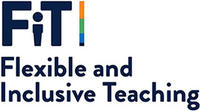Since the start of the 2023-24 academic year, students have had the option to provide their pronouns via Student Self Service. Any pronouns provided in student records are now available to staff and fellow students in Canvas – nothing will show if no pronouns have been provided
Student pronouns are visible to staff, students and other students in several places in Canvas, including ‘Discussions’, ‘People’ and the ‘Student Context Card’. In addition, staff can see student pronouns in ‘Assignment Creation’, ‘Assignment Peer Review’, Course Sections, and the ‘SignUp tool’.
For more information, go to the Student pronouns section of the staff guide to using Canvas at Oxford.



